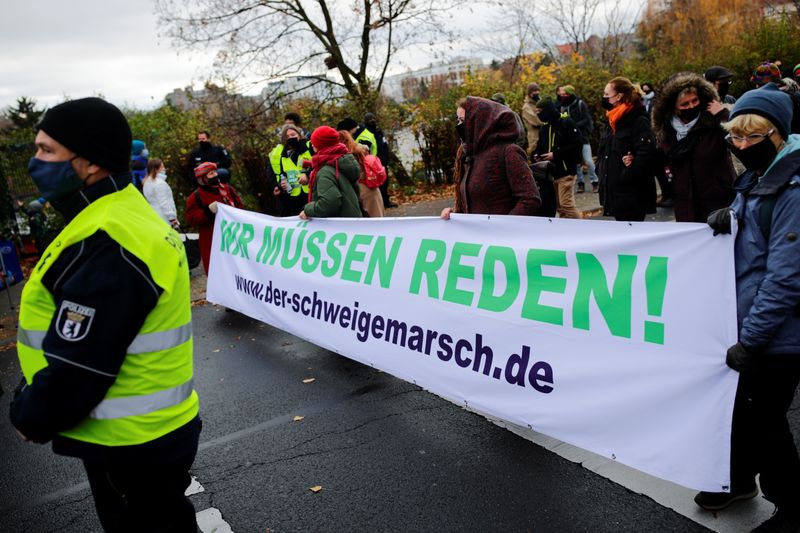BERLIN (Reuters) – Germany will have to extend its measures to contain the COVID-19 pandemic until Dec. 20, according to senior politicians and a draft proposal obtained by Reuters on Sunday.
Germany imposed a month-long “lockdown-lite” from Nov. 2 to contain a second wave of the virus that is sweeping much of Europe, but infection numbers have not declined.
“Everything points to the fact that the current restrictions must be extended for some time beyond Nov. 30,” Finance Minister Olaf Scholz told Bild am Sonntag (BamS).
Bars and restaurants are closed, but schools and shops remain open. Private gatherings are limited to a maximum of 10 people from two households and the draft proposal says that number would be reduced to five.
It was unclear which of the 16 German federal states were backing the draft proposal.
The leader of Bavaria’s Christian Social Union, Markus Soeder, told BamS that ideally measures would be extended by three weeks, which would imply Dec. 20 as an end-date.
“The wave has been broken, but unfortunately the number of new infections is not coming down. Instead, intensive care units continue to be swamped and the death roll rises,” Soeder said.
He said cinemas, bars and hotels would need to remain closed, adding there should be a ban on fireworks and alcohol on New Year’s Eve in large public squares. The draft suggests a sales and purchase ban on fireworks.
Chancellor Angela Merkel will meet with state leaders on Nov. 25 to discuss whether to impose further restrictions or extend the current ones.
Scholz said that financial support for affected enterprises would have to continue if there is an agreement to extend restrictions, but added continued compensation for 75% of lost revenue would be a challenge under European competition laws.
“But it’s about safeguarding livelihoods, so we must act in a pragmatic, unbureaucratic and smart way,” he said.
(Writing by Christoph Steitz; Editing by Raissa Kasolowsky and Barbara Lewis)


























